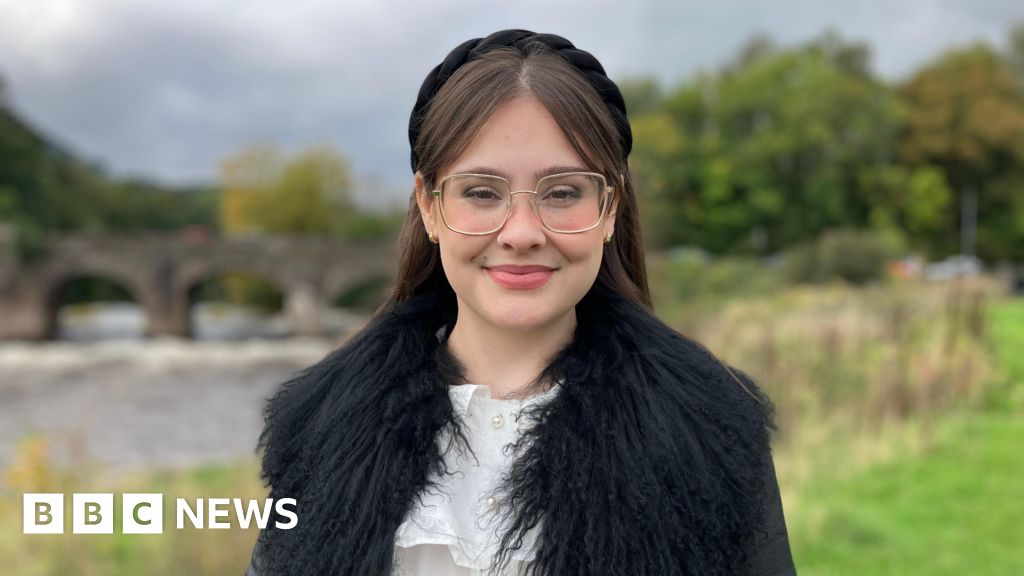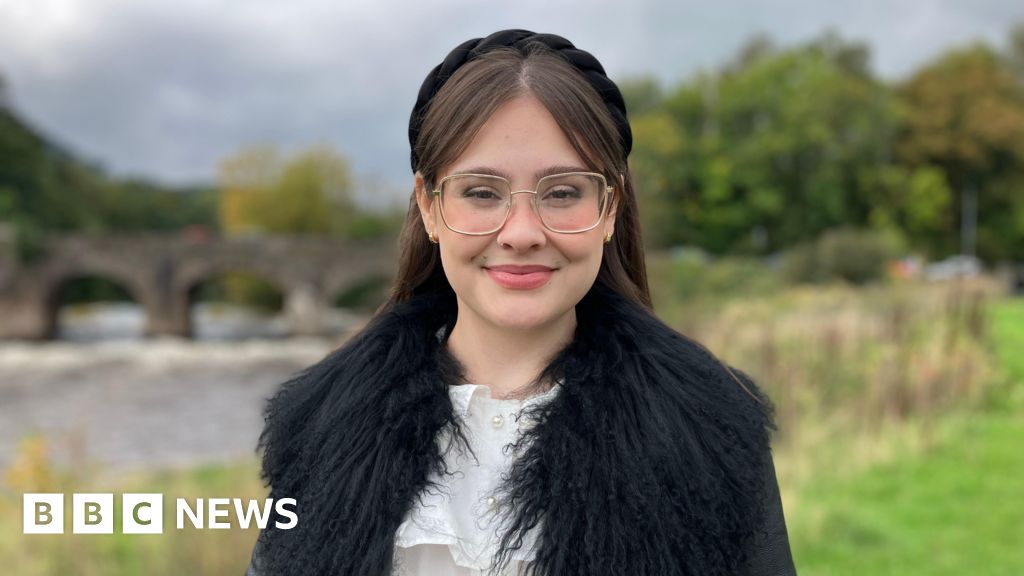**Rising Autism Diagnoses Among Women in Wales: Shedding Light on Late Diagnosis and Support Gaps**
*By Luned Phillips and Meleri Williams, BBC Wales News*
*Published 8 minutes ago*
Molly Siobhan Parker is on a mission to dispel myths surrounding autism—especially in autistic women. Diagnosed at 22, she represents a growing number of adults receiving their autism diagnosis later in life.
Autism diagnoses have risen “exponentially” in the UK. A study revealed that there were eight times more new autism diagnoses in 2018 compared to 1998. In Wales, the number of women seeking support has trebled in the past five years.
The National Autistic Society (NAS) explained that diagnostic criteria have historically been “shaped around stereotypical ‘male’ presentations of autism,” meaning “a generation of women” had missed out on timely diagnosis.
—
### Understanding Autism and Molly’s Journey
Autism is a lifelong neurodivergence and disability that affects how people perceive and interact with the world. It is a spectrum, with traits varying widely from person to person.
Molly Parker, now 28, was diagnosed with autism in 2020. After graduating, her mental health declined significantly. Seeking advice from medical professionals, friends, and family, she decided to undergo an assessment.
The actor and writer from Pontypool, South Wales, said the diagnosis initially felt “tricky,” partly due to the “cookie-cutter” portrayal of autism in the media.
> “I didn’t see myself in that. It was a very disjointed idea of how I felt and how I saw autism,” she said.
> “The kind of ‘nerdy white men’ that love their trains and love their maths—and I think there is a place for that because obviously those people do exist—but there are also different types of people.”
Before being diagnosed, Molly said she felt “suicidal” and now believes she was suffering from burnout due to being undiagnosed.
> “From my research around autistic women, it happens a lot with women being late diagnosed,” she explained.
> “We mask all our lives through high school, through education, through university, and then boom, it kind of blows up—we can’t mask anymore. We’re in severe burnout and we struggle mentally.”
Her diagnosis has had a profoundly positive impact on her mental health.
> “It has done tremendous things for me. I feel the best I’ve ever been. I understand myself, and people understand me more.”
However, Molly expressed disappointment with the post-diagnosis support offered. She sought specialist advice and tools to manage her challenges but was only offered group sessions, which she described as “an autistic person’s worst nightmare.”
—
### Helen Harman’s Experience: From Crisis to Community
Helen Harman, 46, from Newport, shared her own story of late diagnosis. During the Covid-19 pandemic, she found herself in “some very dark places,” worsened by loss of work and other stresses that led her to a crisis point.
After hearing a BBC Radio 4 programme about autism and consulting a neurodivergent therapist, Helen requested an autism assessment. She was diagnosed at 42.
She initially felt relief but soon experienced “a sense of sadness and grief” when reflecting on her younger self and realizing many struggles could have been eased if she had known sooner.
Public figures such as Christine McGuinness and Melanie Sykes have also revealed their adult autism diagnoses in recent years. Still, as Helen pointed out, there remain problematic reactions in society.
> “One of the common things raised nowadays is, ‘why so many now? Why so many diagnoses? Is it trendy?'”
> “The answer to that is no. It’s just people have been suffering in silence a very long time.”
Helen noted that support following diagnosis is often “very limited and very patchy,” which can lead to feelings of isolation.
She co-founded an online community and now runs monthly walks for autistic women aged 20 to 60.
> “I’m really grateful to have found that it’s not just me. I’m not on my own. There is a whole wide world out there whereby differences can be accepted and explored.”
—
### Data Highlights Rising Diagnoses in Wales
Data from Neurodivergence Wales shows a 133% increase in adults seeking autism diagnosis over the past five years—from 2,092 in 2019/20 to 4,882 in 2023/24. Most applicants are aged between 26 and 45. Notably, the number of women seeking support has nearly trebled.
The National Autistic Society said the trend is similar in England. Mel Merritt, head of policy and campaigns, reiterated concerns that diagnostic criteria are often biased toward “male” presentations of autism, leading many women to be overlooked.
Sian Lewis from Wales’ Neurodivergence Service agrees that lack of past awareness has meant women were often “misunderstood or misdiagnosed” with conditions like anxiety or depression, when autism was the root cause.
> “We know many women have had to get to crisis point before accessing the services they need,” Lewis said. “We’re really investing and working hard to ensure that is not the future for the women of Wales.”
—
### Welsh Government Response and Future Focus
The Welsh government stated it is “working to reduce waiting times in response to increased demand for neurodivergence services.” There is also a focus on funding children’s services to support earlier assessment and reduce pressure on adult diagnostic services in the future.
—
### Using Comedy to Raise Awareness
Molly Parker revealed that she was “always a joker” in school, now viewing that behavior as a form of masking to fit in.
> “I’ve definitely dropped the mask now and the comedy has stayed with me. I do love being the entertainer and making people laugh.”
Five years after her diagnosis, Molly is using comedy to fill a “huge gap” in the media portrayal of autism. She has created a comedy film aimed at improving understanding.
> “A lot of people don’t have an understanding of autism and sadly, it falls on ourselves at the moment to educate those people.”
She says she now feels “at peace” with her diagnosis.
> “Once I accepted it and came to terms with it, I could definitely move forward with the life that I want, but with those adaptations that I need.”
—
*For more information on autism and support services, visit the National Autistic Society and Neurodivergence Wales websites.*
https://www.bbc.com/news/articles/cpvl7d29jz8o?at_medium=RSS&at_campaign=rss

